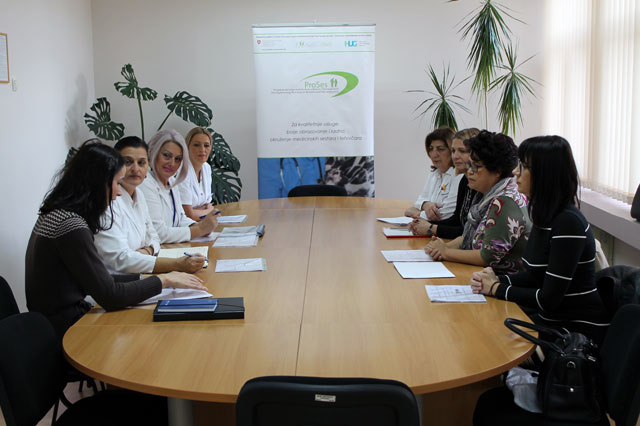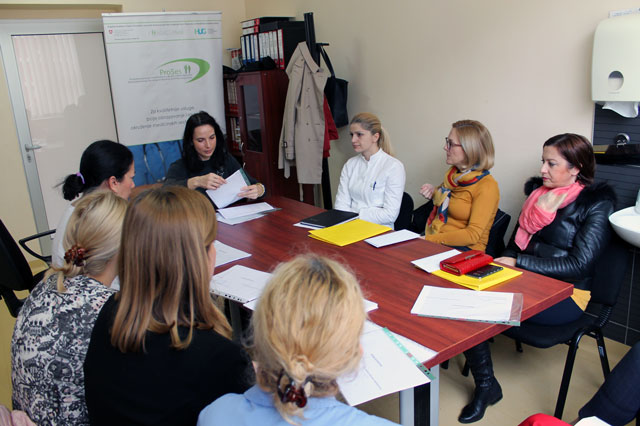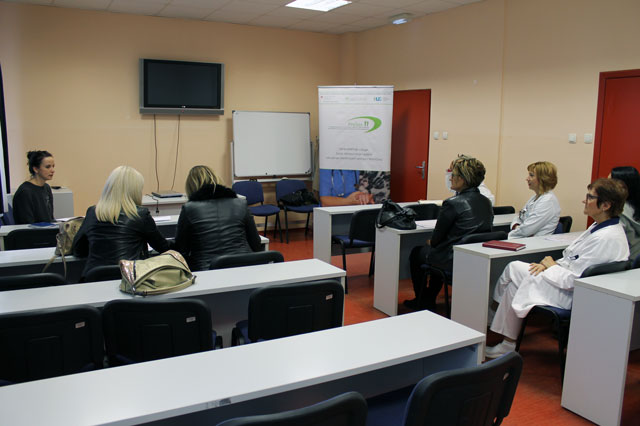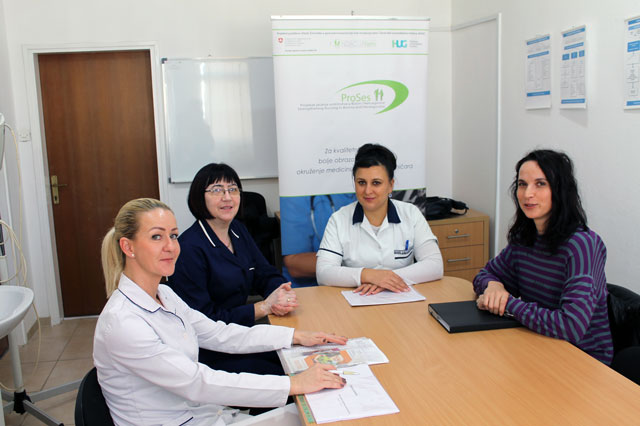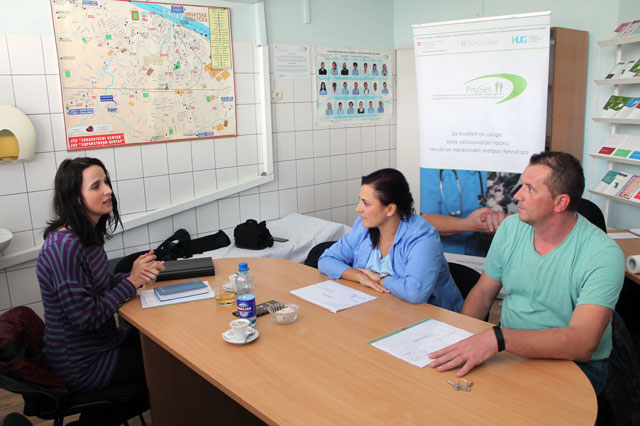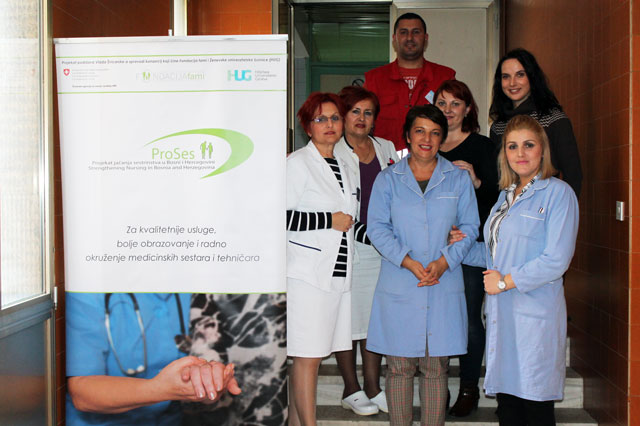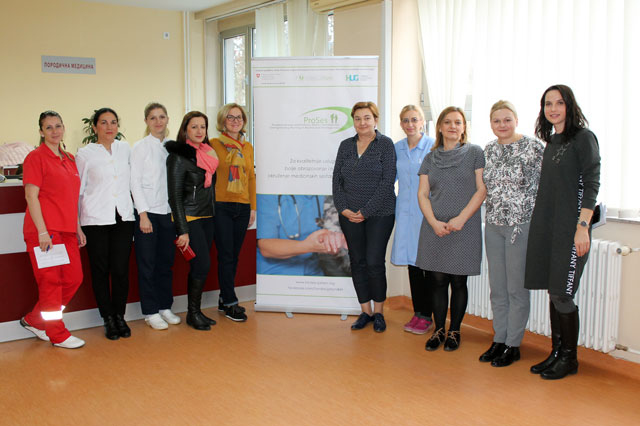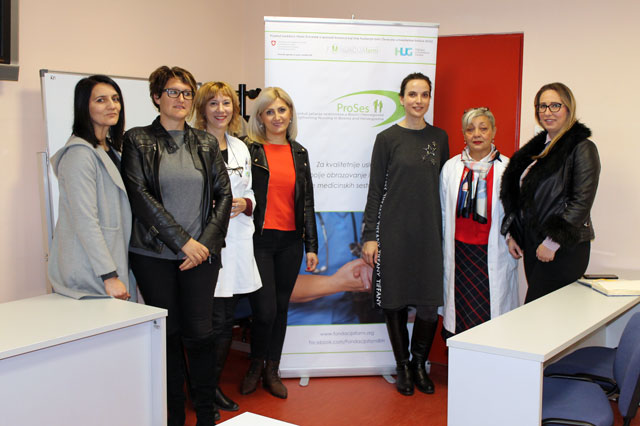The last, fourth round of mentoring visits for nurses in primary health care centers in Banja Luka, Bijeljina, Brcko, Livno, Mostar, Stari Grad Mostar, Odzak, Prijedor, Tomislavgrad and Tuzla has been completed.
During the first project phase, nearly *200 nurses in the above mentioned municipalities received theoretical and practical training and additional equipment for provision of community based services for most vulnerable population groups.
In order to make the new model of practice become a routine and to improve the quality of work, community nurses have been provided with additional continuous professional assistance at work place over a one-year period. All community nurses have made four supervised home visits, each with their mentor. In addition to improving clinical skills, the goal of this activity was to improve the cooperation with the social care sector. Therefore, for this purpose, a guidebook for assessment of the patient’s social status was also developed.
35 mentors – experienced colleagues, nurses who previously underwent the mentioned training and perform the same tasks, and who also acquired basic mentoring skills thanks to a specially tailored training, were in charge of professional assistance. During this period, mentors performed a total of 664 mentoring visits during which they evaluated and provided feedback on the clinical work with patients, contributing to service quality improvement and helping their colleagues’ professional development. At the same time, the mentors themselves made progress, as they have, guided by an expert, built up on their mentoring skills.
In the following period, the project will continue to monitor and support the work of community nurses in the aforementioned ten locations. To this end, further training is planned in those areas that were proven as necessary during the mentoring visits and external project evaluation. For example, assessment of the patient’s cognitive status and nurse’s safety in home visits.
Collaboration with the established network of 35 local mentors from seven primary health care centers will also continue. For them, an advanced training in mentoring is planned to raise their skills to an even higher level, as well as further engagement as mentors in other primary health care centers where the project will be have intervention..
